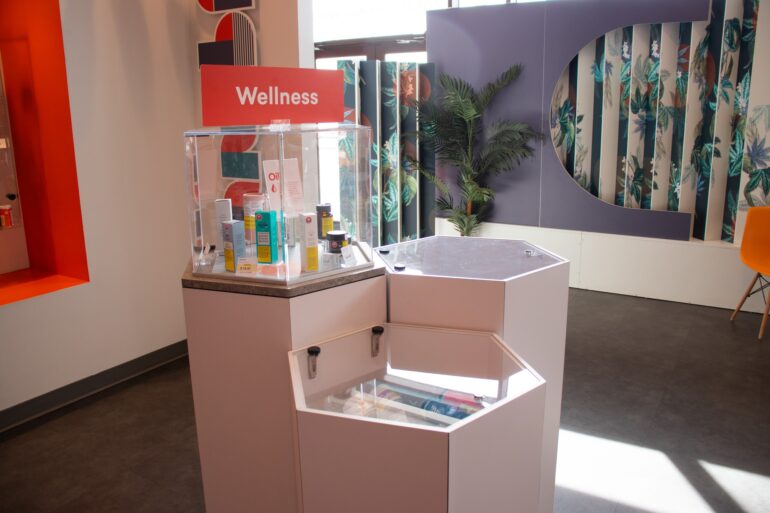It’s not a shocking discovery that higher amounts of responsibilities have the potential to induce more stress and anxiety in an individual. Nor is it a new revelation that some people need a bit of help to overcome those burdens.
That’s exactly what I felt starting college after a four-year hiatus from high school. Something about classrooms, homework and deadlines managed to make me feel like I was a kid who had no idea how to navigate again.
It was overwhelming, to put it bluntly, and so I started looking for natural remedies to help me unwind and relax.
After trying teas, melatonin and different essential oils, all aimed at assisting to take the edge of stress off, I found cannabidiol (CBD) products to be what helped me most.
I’m not the only one to have an experience like this.
Hunter Cron, a second-year business student living in Humber’s residence, often makes a CBD-imbued tea in his room to aid him with handling the stress from school.
“I started trying them more regularly when I would feel anxious from classes,” he said, “During finals last semester, it helped me take my mind off the pressure.”
Cron said he has never felt any sort of inebriation from these products, and they have only served to help him relax when the stakes are high with school.
Although there are other reports of relaxing effects from CBD, it lacks the formal research to be recognized in the pharmaceutical field and used as a mainstream treatment for stress and anxiety, said Dr. Lynda Balneaves, an associate dean of research and professor at the University of Manitoba’s College of Nursing.
“There’s some beginning evidence that suggests it can be helpful, but it’s been in very small studies, not large populations,” she said, “At the bench level, it suggests an anti-anxiety component.
“That’s where we need to start doing clinical trials,” Balneaves said, “Where people are experiencing anxiety and we try different dosages of CBD to get a good sense of the cognitive effects.”
Edward Bednarczyk, an associate professor of pharmacy at the University at Buffalo, State University of New York, shares the belief more trials surrounding CBD in larger groups are necessary.
“We’re starting to acquire some data and it looks promising,” he said, “It’s nice that it works in a study of 10 people, but statistically, you’re not going to design a study for regulatory approval with that small of a sample.
“They’re great pilot studies and they teach us a lot about what we should be looking at, but we can’t stop there,” Bednarczyk said.
“Our work isn’t done there, it’s just beginning, it needs to be expanded out because there’s more questions to be answered to responsibly launch it as a drug for a specific indication,” he said.
Dr. Andrew Hathaway, an associate professor at the University of Guelph, researches illicit drug use and over the past decade, he has conducted a focused study on cannabis products.
While recognizing the therapeutic qualities of CBD for young people, he emphasized the health concerns it may pose for users in the older age group.
“As it becomes a more popular form of supplementation, there is concern of the impact it might have on somebody’s liver when you’re taking large amounts or larger than the system can accommodate,” he said.
“Presumably, young people with well-functioning, healthy livers are the people who are least likely to experience ill effects,” Hathaway said, “As you get older, people with chronic health issues, the impact on the liver may become more of a predominant concern.”
Overall, there is evidence showing CBD has the potential to assist people who have stress and anxiety weighing down on them.
Hopefully, we see more research and studies looking into it in the future so they can comfortably make a safe decision to use it, and be aware of any possible negative effects.


